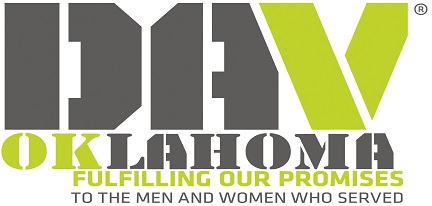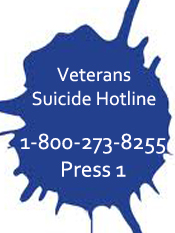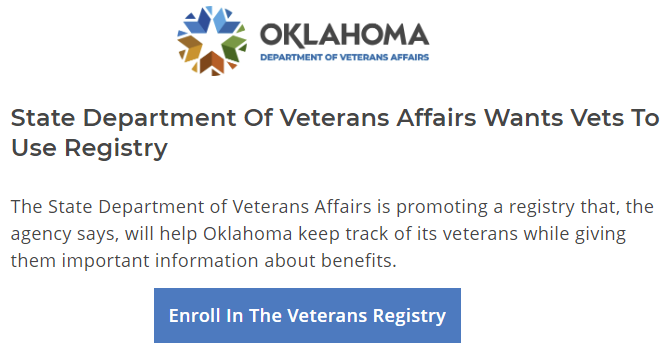When Sgt. 1st Class Ofren Arrechaga was killed in Afghanistan in 2011, his wife Seana vowed to follow the plan the couple had for their family: She would remain a stay-at-home mom to raise their son, now 11. She continues to do that, thanks to the compensation and health benefits provided to widows and widowers of service members who die in the line of duty. Seana Arrechaga was 22 when her soldier died, and she continues to grieve. She doesn’t date. But not simply out of respect for Ofren. She doesn’t see the point, she says, because dating could lead to marriage. And if she remarries before she turns 55, she would lose thousands of dollars a month because of a law that would stop her annuity payments when she tied the knot. “A lot of people assume that we are well taken care of,” said Arrechaga of Gold Star spouses. “And we are, to a point. But to not be able to remarry, to lose benefits, seems unfair.”
Military Survivor Benefits update – H.R.1911 | Gold Star and Military Survivors Act:
VA presumptive Agent Orange diseases update – H.R.2201 | Keeping Our Promises Act:
Recent National Academies of Sciences, Engineering, and Medicine reports have found an association between exposure to Agent Orange and bladder cancer, hypertension, and Parkinson’s-like symptoms. This week, Representatives Westerman (R-AK), Fitzpatrick (R-PA), Tipton (D-CA), Stefanik (R-NY), Cunningham (D-SC), Boyle (D-PA), Thompson (D-CA) and Kuster (D-N.) introduced H.R. 2201, the VFW-supported Keeping Our Promises Act, which adds the new conditions to the list of conditions presumed to be associated with Agent Orange exposure. Adding these conditions to the list would provide veterans exposed to Agent Orange an expedited avenue for care and compensation benefits. The bill would also force VA to evaluate and make a decision on future recommendations. Learn more about the Keeping Our Promises Act at https://westerman.house.gov/mediacenter/press-releases/westerman-introduces-legislation-benefitting-vietnam-era-veterans
VA announces improvements to veteran community care under Mission Act:
The new eligibility criteria will be a major improvement over existing criteria in terms of making things simpler: currently, eligibility criteria vary between VA’s community care programs. When the new criteria go into effect, Veterans can expect better access and greater choice in their health care, whether at VA or through a community provider.
The eligibility criteria are projected to go into effect in June 2019 after final regulations are published and ffective, so the criteria are not yet final. In addition, key aspects of community care eligibility include the following:
- Veterans must receive approval from VA prior to obtaining care from a community provider in most circumstances.
- Veterans must either be enrolled in VA health care or be eligible for VA care without needing to enroll to be eligible for community care.
- Eligibility for community care will continue to be dependent upon a Veteran’s individual health care needs or circumstances.
- VA staff members generally make all eligibility determinations.
- Veterans will usually have the option to receive care at a VA medical facility regardless of their eligibility for community care.
- Meeting any one of six eligibility criteria listed below is sufficient to be referred to a community provider—a Veteran does not have to meet all of them to be eligible. (Real-world examples of when a Veteran would be eligible for community care are included in the eligibility fact sheet linked at the end of the article).
Eligibility criteria
Veteran Needs a Service Not Available at a VA Medical Facility
Eligibility Criteria
Veteran Lives in a U.S. State or Territory Without a Full-Service VA Medical Facility
VA Cannot Furnish Care within Certain Designated Access Standards
Veteran Qualifies under the “Grandfather” Provision Related to Distance Eligibility for the Veterans Choice Program
It Is in the Veteran’s Best Medical Interest
A VA Medical Service Line Does Not Meet Certain Quality Standards
Supreme court delays final ruling on ‘Blue Water’ Vietnam veterans benefits:
As reported by Leo Shane III for Military Times, the Supreme Court this week granted a 30-day extension to Department of Justice officials contemplating an appeal of a lower court ruling in January which extended presumptive benefits to tens of thousands of Navy veterans who have claimed exposure to toxic chemical defoliants during the Vietnam War. But advocates say they are not concerned by the move, calling it a typical legal maneuver and not a serious threat to getting benefits to the group of so-called “blue water” veterans.
VA disability ratings – Post-9/11 vet ratings far higher than prior generations:
According to a government report, Post-9/11 active-duty veterans have disability rates significantly higher than those of previous generations. About 41 percent of those who served after the terror attacks of Sept. 11, 2001, in Afghanistan, Iraq and other war zones have disability ratings from the Department of Veterans Affairs, compared to 25 percent of eras, according to the annual survey of veterans employment and status by the Department of Labor’s Bureau of Labor Statistics. Based on the Current Population Survey of 60,000 households in 2018, BLS said that “41 percent of Gulf War-era II [post-9/11] veterans had a service-connected disability, compared with 25 percent of all veterans.”
VA Telehealth – virtual clinics | mental health & primary care treatment:
The Department of Veterans Affairs, which already has the biggest telehealth program in the United States, is expanding its coverage to fill critical gaps in areas such as mental health and primary care. In fiscal 2018, VA conducted more than a million patient visits through video, and more than 13 percent of veterans have received at least some of their treatment through telehealth. Dr. Neil Evans, the chief officer for the Veterans Health Administration’s Office of Connected Care, speaking 4 APR at a GovernmentCIO conference on health IT modernization, said the agency now provides intensive care unit-level treatment to its rural VA facilities. “We’re really excited about seeing that continued expansion of how we reach patients and also how we can operate more efficiently as an integrated national health system,” Evans said.
S. 374 and H.R. 1092, the Service members and Veterans Empowerment and Support Act of 2019:
This legislation will codify VA regulations regarding the adjudication of claims for mental health conditions, including post-traumatic stress disorder, associated with experiencing Military Sexual Trauma (MST). It would also add technological abuse, defined as “behavior intended to harm, threaten, intimidate, control, stalk, harass, impersonate, or monitor another person, […] that occurs via the Internet, through social networking sites, computers, mobile devices […] to the types of trauma and resulting conditions for which survivors may seek benefits and health care. Finally, the bill would require VA to re-establish specially trained teams to adjudicate MST-related claims for mental health conditions and to report annually to Congress to ensure that these claims are adjudicated equitably.
VA’s regulations for adjudicating claims for mental health conditions stemming from MST allow the Department to consider sources such as a statement from police, a rape hotline, or corroborating reports from friends, relatives or roommates to substantiate a claim. However, in 2017 the Inspector General (IG) issued a report indicating VA had discontinued the specialized training and handling of MST-related cases which resulted in discrepancies in the outcome of many of these claims.
Veterans Access to Child Care Act
Representative Julia Brownley introduced H.R. 840, the Veterans’ Access to Child Care Act, authorizing the Department of Veterans Affairs (VA) to pay for or provide child care for veterans traveling to and returning from a VA facility for regular or intensive mental health treatment or necessary health care services. Veterans-particularly younger women veterans returning from recent deployments-have indicated that lack of child care is a significant barrier in accessing medically necessary mental health readjustment services.
VA reports that younger veterans demonstrate high usage rates of VA mental health care services and data shows women veterans are especially likely to make intensive use of such services. In a recent study, a third of veterans indicated an interest in access to child care services and 10 percent reportedly have canceled medical appointments because they did not have child care. H.R. 840 would allow VA to pay for or otherwise furnish child care to those children for whom a veteran is the primary caretaker to allow the veteran to seek needed treatment.
DAV Resolution No. 173 supports VA’s provision of child care services and assistance to veterans accessing needed VA health care, benefits, education, employment, rehabilitative or other specialized services offered.
Please help support passage of this important legislation by sending your representative the prepared letter or drafting your own version.
Thank you for your participation in the DAV Commander’s Action Network and for your support of our nation’s veterans.
VA disability system update – proposed reform to reduce medical exams:
Administration officials this year are re-upping a series of reforms to the veterans disability system they estimate would cut down on tens of thousands of unneeded medical exams and save billions of dollars. The moves, part of President Donald Trump’s fiscal 2020 budget unveiled earlier this month, call for revising rules regarding medical exams for veterans applying for benefits. The idea was discussed — though ultimately ignored — by Congress last year. But the new savings estimates around the plan could draw renewed interest this session. In last year’s budget, VA officials estimated the moves would cut about $80 million in spending annually, and nearly $1.2 billion over the next decade. This budget cycle, they’ve raised that estimate to about $250 million annually and nearly $2.7 billion by fiscal 2029. Many check-ups, reexaminations and VA appointments duplicating private-sector medical evaluations could be cut, saving veterans’ time and the federal government money. VA estimates that more than 180,000 unnecessary medical appointments were conducted in 2016 and more than 210,000 in 2017, a small but significant portion of the department’s workload. The reforms package also includes changing disability compensation benefits to remove annual income from the eligibility calculation, a move that could increase the number of eligible beneficiaries but also save time and staff in calculating those payouts. “This helps VA standardize the calculation and potentially automate payments, allowing veterans to get payments faster,” the budget document stated.
VA Agent Orange benefits update:
Three years after a scientific body recommended that the Department of Veterans Affairs consider adding three conditions — bladder cancer, hypothyroidism and Parkinson’s-like symptoms — to the list of qualifying diseases tied to Agent Orange, affected veterans may soon find out whether they are eligible for disability compensation and VA health 28 care. During a Senate Veterans Affairs hearing 26 MAR on the VA budget, Dr. Richard Stone, the executive in charge of the Veterans Health Administration, said a decision on the three illnesses likely would come in the next 90 days.




